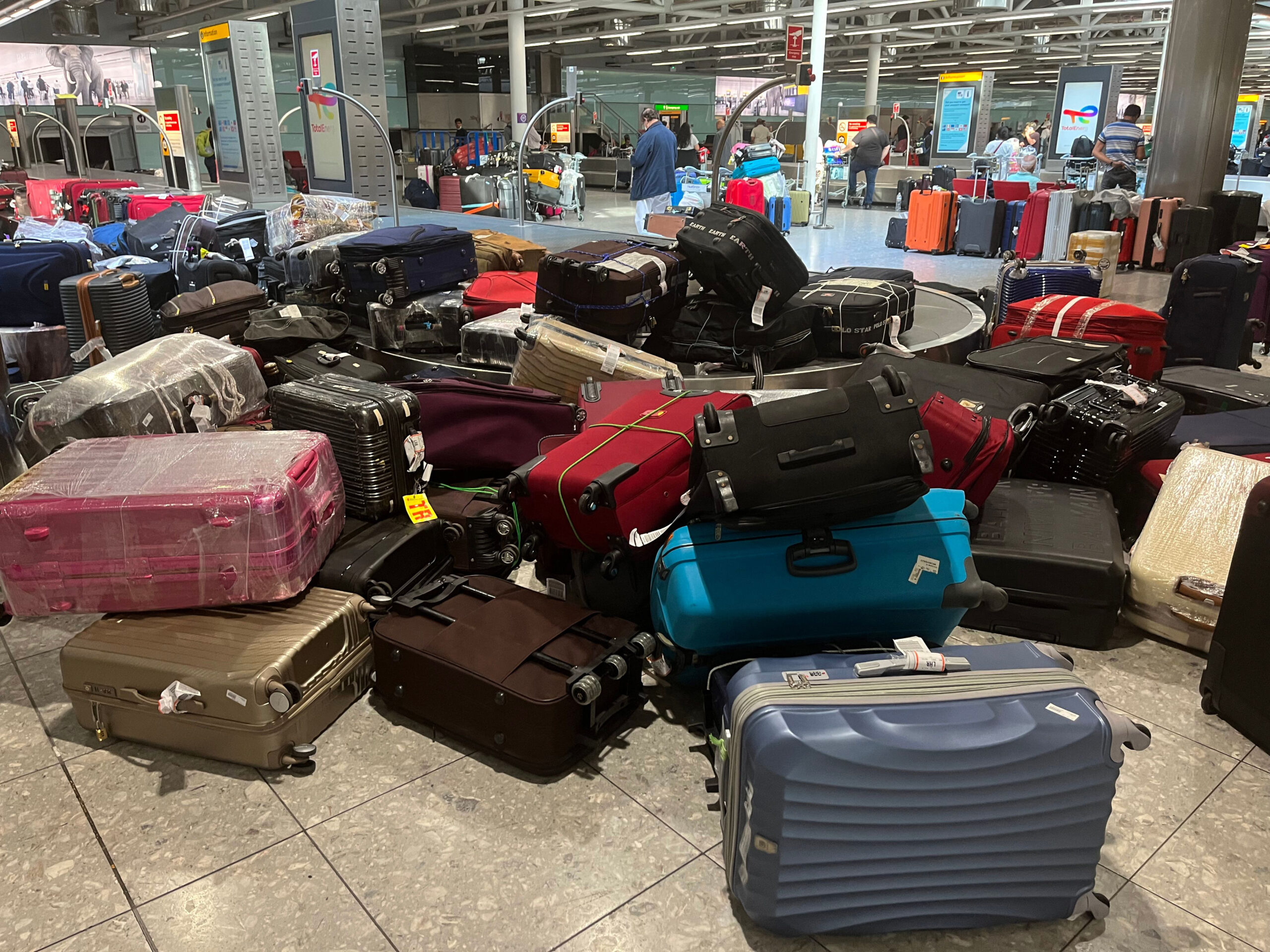San Francisco resident Yana Tsiganenko was finally on her long-awaited European honeymoon, where she and her husband were going to spend a heavenly summer vacation in Italy, Greece, France and Denmark.
But the romantic getaway in June was marred by multi-hour-lines, last-minute flight cancelations, and finally, Lufthansa lost her baggage. Tsiganenko, who got back in early July, has an AirTag in her luggage and can see it shuttling back and forth between terminals in the Frankfurt airport. She says she’s spent hours on the phone waiting to speak with customer service, only to be told they can’t help her.
“I’m considering flying to Frankfurt just to get my bag,” she said. “It’s so frustrating knowing exactly where my bag is but not being able to get it.”
Tsiganenko is one of many who have traveled to Europe this summer, lured by the open borders and favorable exchange rates. But the crush of travelers has caused major European airports to completely “lose control of the situation,” said David Slotnick, airline business reporter at The Points Guy.
Heathrow airport in London announced recently they would force airlines to cap the number of passengers this summer, saying they had experienced 40 years’ worth of passenger growth in the past four months. Charles de Gaulle airport in Paris has lost 20,000 lost bags. Social networks are rife with passengers freaking out over lost baggage and Delta airlines filled an extra cargo plane at Heathrow with stranded luggage. To top it off, European airfare is three times higher than last year.
Using air travel in Europe? My advice is to cancel and go next summer. Airport security lines, luggage handling, etc. seems to be on verge of complete collapse. This is the security line at Schiphol in Amsterdam… pic.twitter.com/wznlP27Zq3
— Joshua Trujillo (@joshtrujillo) July 14, 2022
American airports, which have half the cancelation rates of European airports, are not facing the same dire conditions. Slotnick said that’s because European airport workers furloughed during Covid didn’t get government assistance like American workers, many were forced to permanently switch professions. Additionally, many European airport workers are striking this summer, and airport workers need special certifications, meaning ramp-up time for employees can take awhile. And finally, America has a strong domestic travel culture, so American airports experienced travel woes earlier and have now gotten better at handling throngs of travelers.
“That’s led to what we are seeing with the bags,” Slotnick said. “The airports were trying to keep their heads above water, but they couldn’t keep up and so the bags kept piling up.”
Bay Area resident Stine Jewett took her children back home to Denmark in June for the first time in three years. On the way home, the family experienced multiple flight delays, due to worker strikes and mechanical failures, and flight changes, which led to her missing a connecting flight and their baggage getting lost. It’s been nearly two weeks and she has no idea where her baggage is.
“You know the nightmare where you’re trying to dial a number but keep on getting it wrong?” she said. “That’s what I’m experiencing. Nobody is picking up. You try to tweet them or message them on Facebook, but nothing. Nobody’s helping or communicating.”
Slotnick says Europe travelers should get to airports 3 hours in advance, leave long buffers for flight connections and avoid checked baggage at all costs. He hopes the situation will abate shortly, as summer travel eases and airlines staff up.
“Things should ease in September and October and then hopefully be under control by the holidays,” he said.
